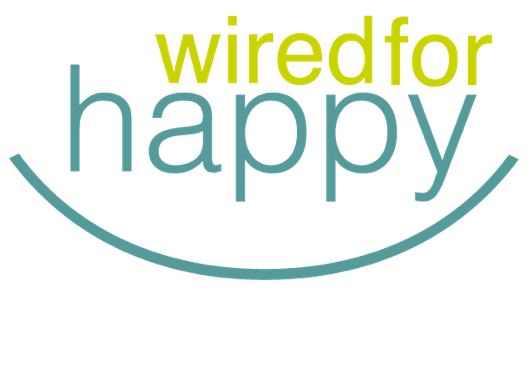Do you ever feel betrayed by your partner after yet another heated argument, in spite of the fact that you both agreed not to (insert the below-the-belt behavior that fits) criticize, bring up the past, discuss ex’s, yell, scream, accuse, threaten to leave, etc?
If so, you are not alone. But, if this pattern doesn’t change, you just may end up alone.
During conflict couples often engage in, and elicit from their partners, the very behaviors they want to avoid.
Huh?
Allow me to explain. “Lara” left her last relationship because her boyfriend grew emotionally distant, or explosively angry during conflicts.
“Will” her current partner is starting to withdraw during arguments, which causes Lara’s anxiety to spike. Their disagreements are increasingly frequent and intense and Lara feels like she’s walking on eggshells. Worse, she doesn’t know how to get her relationship back on track.
Will also questions their long-term prospects and feels frustrated when Lara shuts down or accuses him of acting “just like my ex.”
Like many emotionally volatile people, Lara did not grow up with a loving, trusting relationship with her caretakers. As a result, Lara becomes emotionally dysregulated when conflict arises: she either lashes out in anger, or flees in anxiety to escape the perceived threats to her identity, security and safety.
“Emotional regulation” is a critical skill (with an unfortunate name) that teaches us how to express and experience emotions in healthy ways.
Reactivity and Destructive Coping
Love and trustworthiness are the foundation from which healthy relationships are formed. Without these two critical components, instability is inevitable. In the midst of disagreements, individuals resort to toddler-like tantrums when their needs are not met, and they end up repeating the very behaviors that are guaranteed to drive their partner away.
This process is usually unconscious, with neither partner actually wanting to create more chaos and conflict. However, the limbic system–the area of the brain primarily responsible for processing emotions and storing memories—is rather primitive and impulsive.
The amygdala (a part of the limbic system) is particularly prone to emotional reactions of fear and anger, which in turn are closely linked with the reactions of fight and flight (LeDoux, 1996).
In other words, when Lara feels unloved and insecure, her limbic system is activated and the emotional pain causes her to overreact. She then copes by fighting to get what she wants and/or fleeing in anxiety to escape the perceived threat.
How to Reduce Chaos and Unpredictability
When people find themselves repeating the same unhealthy relationship patterns, despite their best intentions, “repetition compulsion” is often the root reason.
Because Lara was raised in a chaotic and unpredictable household, she learned that her caregivers and her environment were unstable and untrustworthy. To compensate,she coped by becoming overly self-reliant and controlling. In adulthood, Lara has not been able to form a healthy dependency on her partners. Her core belief that “nobody will take care of me” causes feelings of isolation, hopelessness and despair.
The answer to combatting the pain cycle of lashing out or leaving lies in emotional regulation.
7 Steps to Improve Emotional Regulation
1. Practice mindfulness-based activities to diminish emotional flooding. When Lara pays attention to what her mind pays attention to, she is able to recognize her physical stress signals. This critical first step prepares her to implement deep-breathing to slow her mind and body. While dwelling in calmer physical and mental states, Lara creates space between her anxiety and anger so she’s less prone to reacting in the heat of the moment.
2. Ask, “What is the story I’m telling myself?” When Lara is emotionally charged, she thinks with wp themes her “irrational brain” (amygdala), and subsequently views her situation from a distorted lens based on past grievances or future catastrophic outcomes. When she reflects on her irrational assumptions, she can recognize her unhealthy tendencies and invite a more rational and realistic interpretation. Doing so allows her to listen to Will’s point of view.
3. Ask, “Do I want to be in a relationship or do I want to be right?” Overly reactive people tend to see conflicts as threats. However, conflict in relationships is not only inevitable, but healthy—provided the aim is to resolve issues. Research shows that partners who engage in a competing style of conflict are more concerned with their own interests rather than their partner’s interests. On the other hand, using the collaborating style of conflict increases the focus on cooperative problem solving.(Guerrero et al., 2001).
4. Name your feelings. “You make me so mad!” is not as effective or accurate as expressing the underlying emotions of anger. Like many people, Lara finds it easier to act out her anger. When she responds with “I overreacted because I’m afraid you’re looking at me and thinking, ‘Why am I here?’” she can come to terms with her feelings of shame, vulnerability, fear, and rejection.
5. Identify your behavioral patterns. Lara grew up thinking ‘you can’t help the way you feel.’ In reality, her thoughts are what create uncomfortable feelings, which then lead to destructive actions. When Lara sees how her emotional reactivity manifests, she is ready to reframe her thoughts. Most importantly, she is no longer able to hide behind her feelings or use them as excuses, because she sees herself as possessing agency over her behaviors.
6. Rewire your brain though self-parenting. It is a sad reality that many children experience emotional neglect. Although the process of rewiring the brain’s emotional circuitry is arduous, it is possible. Psychotherapy is highly recommended for reparenting. As Lara experiences her therapist’s unconditional positive regard and “good parenting” in a safe environment, she is able to apply these lessons to herself. Best of all, she internalizes the message that she is a capable, competent person, worthy of love and acceptance.
7. DO differently. Many emotionally reactive partners like Lara and Will get caught in the trap of repeating the same arguments while expecting a different outcome. As both made intentional efforts to recognize their unhealthy patterns, they were able to change their destructive behaviors by focusing on rebuilding love and trust.
Emotional regulation is a critical skill for healthy interpersonal relationships. The process of rewiring the brain to recognize the signs of dysregulation takes time, practice and commitment. Through mindfulness, asking insightful questions, reparenting, and vowing to do differently, couples can stop the pain cycle of misunderstanding. Critical steps, indeed, when love, trust and safety were not taught, modeled or expressed during childhood.
*****
Thank you for being here.
If you learned something from this article, I’d be most appreciative if you would share it on Facebook or Twitter.
Yours in healthy emotional expression,
—Linda Esposito
Subscribe // Team Happy // Wellness Boot Camp








